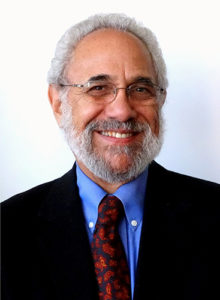When I moved to Baltimore to be closer to my daughter and grandchildren, I left behind 50 years of work in New York’s mental health community, 20 years of teaching at Columbia University School of Social Work, an active life in jazz and in photography, many friends, and (though I tried to avoid it) a few enemies and detractors. It was a lot to give up, especially for a person with a long history of recurrent depression that I self-treated (with a few interludes with professionals) by staying constantly engaged in activities that absorbed me and kept me in contact with others.

I arrived in Baltimore with none of that, and I’m convinced that volunteering saved me from what would have been a devastating slide into depression. I’ve had bad moments, of course. I’m up and down like I’ve always been. But I hate to think of how bad it could have gotten.
Once I arrived, I volunteered whenever I could. I wrote a couple of articles for the Baltimore Jazz Alliance Newsletter and found my way to a weekly jam session that led to a regular gig as a happy hour piano player.
I gave a presentation at Johns Hopkins School of Public Health. I wasn’t great, to tell the truth. But I met a few people.
I got myself invited to sit in at the Baltimore Aging Commission where, I’m afraid, I made a bit of a nuisance of myself, but I also participated on a couple of very interesting committees with some very interesting people.

Michael B. Friedman, LMSW
Most importantly, I was able to form a relationship with AARP of Maryland, where I am now the volunteer chair of their Cognitive and Behavioral Health Advocacy Team, which I set up about a year after I arrived in Baltimore and about six months into the pandemic. I now have friends (and a few adversaries) from all over Maryland who share my interest in the well-being of older adults with cognitive and/or behavioral health conditions.
At AARP of Maryland, I am one of about 50 volunteer advocates who work on a broad range of issues—racial equity, drug costs, driving safety, scam protection, quality of long-term care, access to broadband, and many others. There are also hundreds of more volunteers working on all sorts of projects around the state.
So, if I wasn’t convinced before, I am now, volunteering saves a lot of people from the potentially devastating impact of retirement.
What’s the big deal about retirement?
First, working keeps us busy. Some people are happy as clams (however happy that is) after they no longer have to go to work, but some of us are at our wits’ end. Why get up? Why get dressed? Why brush your hair? What’s the point?
Secondly, working provides a bit of a social life, people to joke with, people to share family information with, people to have a political disagreement with, people to comment to about the weather, about anything, just to have a little human contact. Some people, I know, are just delighted to stop the small talk, to have some peace and quiet, to read a book, to take a walk. But a lot of us really miss the human contact we’ve had at work.
Thirdly, working gives many of us our sense of identity. To ask who someone is, we ask “What do you do?” After I retired, I answered with what I used to do. Now I can talk about my volunteer work. Yes, there are certainly some people, maybe most, who were never defined by their work; it was just what they did to earn a living. But for many of us—if we have been lucky in our careers—what we do is who we are in very large part.
Fourthly, those of us who have been lucky in our careers draw our sense of meaning from what we do. Some people who retire are content with the meaning they’ve had. They feel, I think, that their past meaning sticks with them even after they’ve stopped working. Other people, like me, feel that we no longer have meaning, that we no longer matter very much, that we are no longer making a contribution, that we are failing to fulfill our duties as human beings to make the most of our lives. Yes, we may have meaning to our families, but that’s not the same thing.
Finally, some of us have a need to be (or just to seem to be) important. We find ourselves bragging excessively about achievements from long ago. Pride of this kind is an important source of self-esteem for many people when they get old, and maybe it’s enough for some people. But for others, it is a pale replacement for a sense of importance now. Again, some people retire without any feeling of loss of importance. They are satisfied with their past and with their present and perhaps even at peace with their ultimate end. But some of us feel invisible as we get further and further away from our active careers.
It’s pretty clear, I think, how volunteering can help those of us who find retirement difficult or even painful. It fills the time. It gives us an opportunity to socialize. It gives us a new identity, a new way of defining ourselves. It gives us a sense of meaning and purpose and value. It gives us an opportunity to make a contribution to our world. And maybe it can let us feel important again.
There are, of course, other routes to personal satisfaction after retirement. New family roles, especially grandparenting. New clubs to join. New challenges to become good at something, whether it’s golf or painting. New opportunities to learn and to be creative. For some, retirement brings a new opportunity to seek transcendent meaning in religion and other forms of spiritual experience. And for some, retirement makes it possible just to relax and find some peace after lives of hard work and struggle.
All of this makes well-being possible in old age.
As does volunteering. Formal research confirms that volunteering is a source of social connection and thus an antidote to social isolation, which is a major source of mental distress. It confirms that people who volunteer have a greater sense of belonging, and it confirms that volunteering is a source of pride.
This reminds me of a poem by Robert Frost called the Hired Man, in which a former hired hand, who is dying, returns to a farm where he once worked because he has no other home and is desperate for the company of someone who cares. Frost describes him as a man with nothing to “look forward to with hope and nothing to look backward to with pride.”
Volunteering can be a source of both pride and hope. And for me, it is a major source of sanity in a world that I find distressing in the extreme and in which I otherwise would feel less and less relevant.
Michael B. Friedman, LMSW is a retired social worker who continues to teach at Columbia School of Social work—via Zoom—and who has become the volunteer chair of The Cognitive and Behavioral Health Advocacy Team of AARP Maryland.




